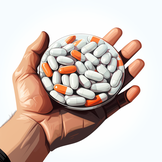Hernia surgery and impotence.
- The Relationship Between Inguinal Hernia Surgery and Sexual Function
- Effects of Inguinal Hernia and Surgery on Sexual Activity
- Improvements in Sexual Enjoyment Post-Surgery
- Addressing Concerns About Sexual Dysfunction
- Role of Surgery in Sexual Function
- Managing Post-Surgery Pain and Swelling
- Recovery and Returning to Normal Activities
- Nutritional Recommendations for Optimal Recovery

The Relationship Between Inguinal Hernia Surgery and Sexual Function
Inguinal hernia surgery is a common procedure that can have various implications for a patient's quality of life, including their sexual activity. Research and clinical observations have shed light on how these surgeries impact sexual function, offering both reassurances and cautions for patients undergoing these procedures.
Effects of Inguinal Hernia and Surgery on Sexual Activity
The presence of an inguinal hernia and the subsequent surgery to repair it may influence sexual activity, primarily due to pain and cosmetic concerns associated with the hernia itself. While a hernia is unlikely to cause erectile dysfunction (ED) directly, temporary changes in sexual function can occur post-surgery.
Improvements in Sexual Enjoyment Post-Surgery
For many, repairing an inguinal hernia can improve or at least not worsen sexual enjoyment. The removal of the bulge, which was previously a physical and possibly a psychological barrier, can lead to a recovery of sexual life, especially in the absence of postoperative complications.
Addressing Concerns About Sexual Dysfunction
Despite the general optimism, it's important to acknowledge that a small percentage of men may experience sexual dysfunction or pain during sexual activity after hernia surgery.Studies have reported that around 5% of men developed sexual dysfunction, and approximately 9% experienced pain during sexual activity after their procedures.
However, these outcomes are not very common.
Role of Surgery in Sexual Function
Hernia repair surgery typically does not interfere with the blood vessels or nerves crucial for sexual function, suggesting minimal risk of long-term sexual dysfunction. The surgery aims to correct the hernia with little to no impact on sexual health, emphasizing the importance of post-operative care and recovery.
Managing Post-Surgery Pain and Swelling
Pain and swelling due to an inguinal hernia can negatively affect sexual functions, but these are often temporary conditions that improve with proper care. Using a jock strap and ice packs, followed by heating pads, can help minimize discomfort and swelling, facilitating a smoother recovery.
Recovery and Returning to Normal Activities
Recovery times can vary, but most individuals can engage in light activities and return to work within 1 to 2 weeks post-surgery, depending on the nature of their job and the absence of complications. Engaging in sexual activity is generally safe once discomfort is manageable and the patient feels ready, highlighting the personalized nature of recovery.
Nutritional Recommendations for Optimal Recovery
A healthy, balanced diet plays a crucial role in recovery post-surgery. Incorporating a variety of foods from all food groups and limiting the intake of junk food can help maximize the nutritional quality of every calorie consumed, supporting overall health and potentially aiding in a quicker recovery.
Inguinal hernia surgery and its relationship with sexual function is a nuanced topic. While the surgery is generally safe and unlikely to cause long-term sexual dysfunction, individual experiences can vary. Addressing concerns with healthcare providers and focusing on recovery are key steps toward resuming a healthy sexual life post-surgery.



